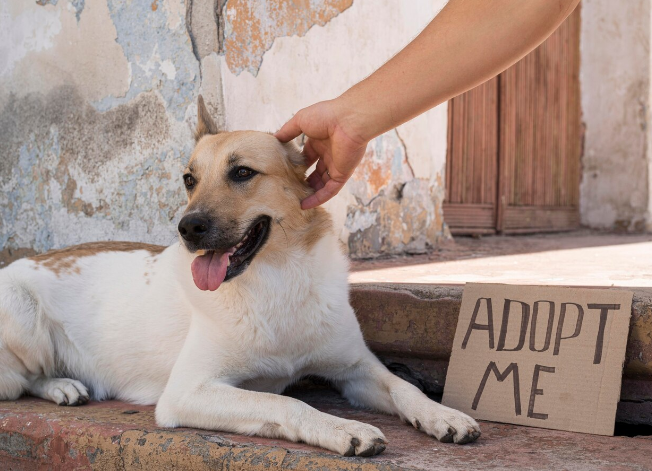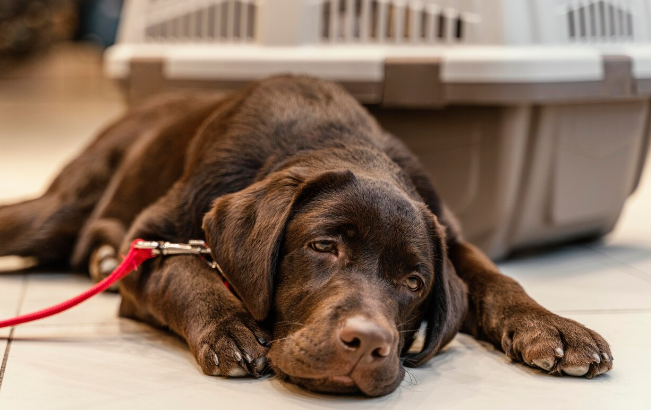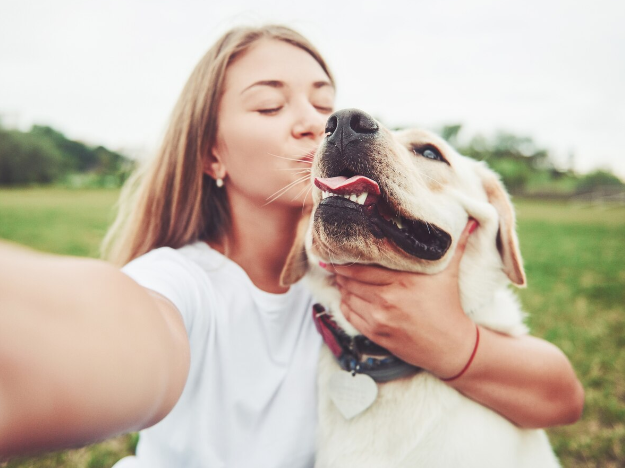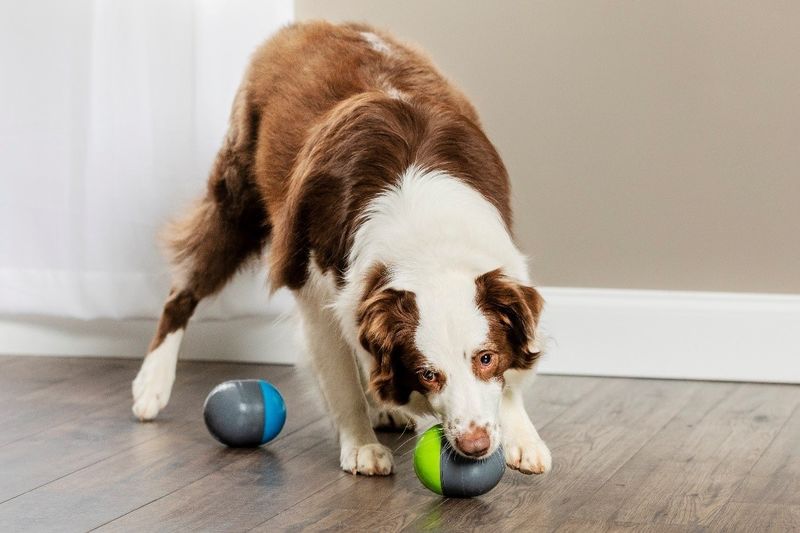
Some of you might have already heard the following quote by Henry Ford: “Failure is simply the opportunity to begin again, this time more intelligently.”
There is nothing wrong with failure and if we are smart and brave enough, it does not prevent us from achieving our goals. While humans often have the opportunity to make adjustments and try again, it is not the same with dogs, and service dogs, in particular.
Unlike us, our paw friends, are not likely to be given many chances to try again, once they fail a training program.
What does it mean for a dog to fail as a service dog, and what happens to canines who fail in this role?
Can these lovely creatures find new homes and enjoy their lives as pets, and how can this happen?
Let’s find out how we can welcome dogs who did not succeed as service animals into our homes and offer them their new, forever homes!

Reasons for a Dog to Fail as a Service Dog
Before we start explaining the reasons for a canine fails as a service dog, it is important to note, that every dog has their own temperament, personality, breed, and genetic predispositions. The mere fact that a dog is not suitable as a service dog to perform specific tasks for a specific person, does not make them automatically any less valuable. Each dog has their own unique strengths and abilities, and the role of a service dog requires a very particular set of characteristics and skills.
Unsuitable Temperament
The dog may have a temperament that is not suited for the role, such as being too shy, reactive, or easily distracted.
Also, sensitivity to stressful situations, common in some environments where the dog will be needed, can interfere with the dog’s reliable task performance.
We would like to note, though, that some temperament traits can be changed and a dog's behavior can be guided in the right direction, especially while the dog is still young and when using the right approach. However, the dog still needs to have potential that you can further work on to shape their behavior properly.
Even when a dog is unable to meet the criteria required for service dog work, it does not mean they are not trainable or bad pets. Instead, they might thrive in a different role or as beloved family companions.
Behavioral Issues
This point is directly connected to the previous one, as an unsuitable temperament will likely lead to certain behavioral issues.
If you are dealing with a pup, you can evaluate their temperament and do a puppy test to determine their suitability for the job. However, it is normal to anticipate some age-related behavioral issues such as a lack of impulse control, chewing, whining, etc. Dogs outgrow most of these issues, however behavioral management in a timely manner is still needed.
As mentioned in the previous point, many behavioral issues such as barking, jumping on people, or quickly losing focus, can be addressed with proper training. However, if the dog shows tendencies to be stubborn, independent, and unable to remain focused, they may fail a service dog program.
Training such dogs is not impossible, though, but it requires significantly more time, effort, and specialized techniques. In some cases, despite all efforts, certain dogs may simply not possess the temperament or adaptability needed for the demands of specific service dog tasks.
Not the Right Type of Service Dog Work
A dog can fail to be a service dog performing certain tasks but succeed in performing other types.
For example, you may need your paw friend to bring items to you, as due to decreased mobility or the side effects of medication, you may be unable to get them yourself. Your paw friend may fail in performing retrieve tasks but excel in doing other tasks, such as Deep Pressure Therapy.
It is crucial to know the dog’s temperament and what type of tasks they are suitable for. As Einstein said: “Everyone is a genius. But if you judge a fish by its ability to climb a tree, it will live its whole life believing that it is stupid”.
Health Issues
The dog may develop health problems or have congenital issues that prevent them from performing their service dog tasks effectively. This could include chronic illnesses, allergies, or physical limitations.
Some dog breeds are predisposed to developing certain health conditions, so when you opt for a dog breed, make sure to familiarize yourself with all possible health issues a canine of that breed could develop at some point. Regular veterinarian checks are an absolute necessity to ensure the dog is healthy and able to perform their tasks.
Incompatibility with Handler
You might have already heard of the process of matching a dog with a person. Just like humans, dogs have their temperaments and personalities, and these either match or do not match with prospective handlers.
In some cases, a dog might fail as a service dog for a specific person because they are unable to develop a strong bond. A strong bond with the handler is crucial for successful training, especially in psychiatric service dog training, which relies on the connection between both parties.

What Should You Consider Before Adopting a Failed Service Dog?
Welcoming a paw friend into your home and giving them a chance to live a fulfilled life as pets or as a different type of service animal, is a rewarding experience! However, it requires thought and preparation, as adopting a dog is a commitment, and you should handle it responsibly.
Assess Your Lifestyle
It is not only about the dog’s suitability for a specific person but also the individual’s suitability for a specific dog.
If you are on the way to adopting a failed service dog, you should carefully evaluate your lifestyle to determine whether or not you can meet the dog’s needs. You should think about the time you have to actively participate in the dog’s life; whether or not you can invest money in food, supplies, toys, etc; spend quality time with them; maintain their training progress; develop an emotional bond with them, etc.
We advise you to consider how your daily schedule would align with the canine’s needs, as they may require more interaction and activity than a typical pet. If you are too busy and spend long hours away from home, are impatient, or experience financial difficulties, you might first consider what adjustments you can make to properly care for a dog and a failed service dog in particular.
If you do not feel ready for this step at that point in your life, it is better to wait for a more suitable time.
Familiarize Yourself with the Reasons Why the Dog Failed as a Service Dog
This is a crucial component of the process as it will give you insight into the specific reasons the dog failed and how they could possibly affect you.
If the dog does not have the right temperament for the job, as they are stubborn or anxious, would you be able to deal with these issues and properly raise the dog?
If the dog has health issues, can you invest time and money into proper home care and veterinary support?
Ensure you obtain information about both the dog's health and temperament, as both are essential for your future cohabitation. The more information you gather, the better! It will help you evaluate the reasons behind the dog’s failed training as a service dog and decide whether or not you can address them.
Physical & Mental Stimulation
Failed service dogs are often accustomed to a high level of activity and mental engagement. Evaluate if you have not only the time but also the energy and level of commitment to provide the necessary exercise and stimulation.
This might include long walks, playtime, training sessions, and providing mental challenges. Puzzle toys, training games, and obedience exercises are crucial to keep your paw friend happy and prevent behavioral issues.
Special Needs
Failed service dogs might have specific needs arising from their previous training and experiences.
These needs can vary widely based on the nature of their training and the reasons for their withdrawal from service work. For instance, a dog who was trained for mobility assistance may have specific physical needs or sensitivities, while a dog trained for psychiatric service dog work may require particular social interactions and emotional reassurances.
Understanding and accommodating these needs is crucial for successful adoption and integration in the new family for several reasons.
Firstly, failed service dogs may have undergone rigorous training and exposure to various environments, which might have influenced their behavior and responses to stimuli. They may require patience and understanding as they transition into a new role or environment.
Secondly, failed service dogs might have developed strong bonds with their previous handlers during their training, making them highly responsive to human cues and emotions. This bond can be beneficial in developing a strong connection with the new owner, but may also require careful management to prevent separation anxiety or behavioral issues.
Routine & Structure
We often emphasize the importance of routine and structure for successful training.
A consistent routine and structured activities are especially crucial for failed service dogs! This is because they might be accustomed to a specific schedule, therefore, maintaining consistent feeding, walking, and training routines can greatly help them adjust to their new homes. Otherwise, they may struggle to adapt and exhibit anxiety or behavioral issues.
It is essential to carefully consider all the factors, that may affect the process, and make an informed decision.

How to Find Failed Service Dogs for Adoption?
Once you have reviewed all the points above, considered all aspects of raising a failed service dog, and decided that this is something you want to do, you should find ways to adopt such a dog.
The process involves reaching out to specific organizations and using online resources dedicated to dog adoption.
Service Dog Organizations
Reaching out to reputable service dog organizations or training centers in your area is probably the best way to proceed. Such organizations might be able to provide comprehensive information about their dogs, types of training they have undergone, health, temperament, and reasons for withdrawal from their service dog programs.
You can directly ask about their adoption procedures and criteria for adopting a failed service dog. Many organizations have specific requirements to ensure the dogs go to suitable homes.
We will list below several organizations that may help you in your endeavor to adopt a failed service dog and quote some portion of the information available on their websites:
Canine Companions for Independence
“Canine Companions is committed to finding the perfect placement for every dog, no matter what that placement might be. If a dog is deemed behaviorally or medically inappropriate for our program, we will first evaluate if the dog is suitable for transfer to another agency, such as another service dog organization, drug detection, or search and rescue. If agency transfers are not a good fit for the dog, the dog will be released and made available for adoption as a family pet.”
“Interested in adopting one of Guide Dogs for the Blind's dogs that hasn't gone on to become one of our program dogs, or been placed with another working dog organization? (Program dogs include breeder dogs, guide dogs, and K9 Buddies.) We are committed to finding the perfect forever homes for our adoptable career-change dogs. Because we receive significantly more applications for adoption than we have dogs available, our selection and matching process is based on suitability rather than on a first-come, first-served basis. Dogs are matched in consideration of the needs of both the dog and the potential adopting home.”
“PAWS pet dogs are not to be trained or utilized for any other type of work, including therapy, social support, or other Assistance Dog work. These dogs may be unable to complete training for medical reasons such as allergies or hip dysplasia, or they may exhibit behaviors that are not suitable for working dogs. We are not able to make any guarantee about how the dog will behave in your home based on the training they have received. If the dog is being placed as a pet due to medical reasons, these reasons will be disclosed to you if your application is approved”.
Freedom Service Dogs of America
“At Freedom Service Dogs, we believe dogs can make a profound difference in the everyday lives of people challenged by disabilities. We breed and custom-train service dogs, professional therapy dogs, and skilled companions–each one placed with the individual or situation for which it is best suited.
For some dogs, they are best suited to be pet dogs where they can pursue the passions and interests of their choosing, rather than pursuing careers as working dogs. These dogs are placed as pet dogs, and it's our duty to find them loving homes.”
Local Shelters and Rescues
While not as common, some shelters may occasionally receive failed service dogs for adoption. These dogs can sometimes be adopted by individuals or families looking for a well-trained companion.
When visiting shelters, it is beneficial to discuss your interest in adopting a former service dog with the staff. They can provide insights into any dogs that fit this category or if such dogs are unavailable, they may direct you to potential sources.
Also, even if you do not find any dogs who have participated in a service dog training program, you still can find your paw family member waiting for their forever home! Based on our experience, many rescue dogs have great potential to become excellent service dogs, and can develop very strong bonds with their humans!
Websites for Adoption
Explore the depths of the online realm!
You can look for websites that specialize in listing dogs for adoption, including failed service dogs, such as Petfinder, Adopt-a-Pet, and Rescue Me, PetRescue. There are usually options available in terms of selecting a specific breed and location.
Social Media Platforms
There are many social media pages and groups dedicated to dog adoption. Organizations and individuals often post about dogs available for adoption, including those from service dog programs.
Whether it is Facebook, Instagram (#AdoptDontShop), or Twitter, you can find numerous accounts dedicated to finding loving homes for rescue animals, including failed service dogs.
Attend Events
You might consider participating in adoption events specifically organized by service dog organizations.
These events often aim to show that dogs who are retiring or have not passed their service training are still highly trainable and well-behaved. Furthermore, such events and community gatherings will help you meet these dogs in person, inquire about their health and behavior, and see if they might be a good match for you.
Connect with Veterinarians and Trainers
You might try connecting with veterinarians who specialize in working with service dogs or general practitioners who treat service dogs. They may be aware of dogs that are available for adoption.
Also, they can provide valuable information about the health and temperament of dogs, withdrawn from service dog programs, who are looking for their forever homes.
On the other hand, dog trainers, who work closely with service dog organizations or have experience with service dog training may also have information about dogs who were not a good fit for a service dog program and are looking for adoption.

The Adoption Process
Application and Screening
When you decide to adopt a failed service dog, the first step typically involves filling out an adoption application.
This application helps the organization understand your preferences, lifestyle, and the environment the dog will be living in. It often includes questions about your experience with dogs, your daily schedule, and how you plan to care for the dog.
After submitting your application, you may be invited to an interview, which aims to ensure that both you and the dog are a good match. Organizations may ask about your expectations from the dog, and your ability to meet their needs.
The process also helps the organization figure out how committed you will be to the dog’s well-being.
In addition to the application and interview, some organizations may also conduct home visits. These visits allow them to assess your living conditions and ensure that they align with the dog's requirements. They may check for factors such as space, safety, and any specific accommodations the dog might need.
Transition and Adjustment
Once your application is approved, and you are matched with a dog, it is time for the next step-the transition phase.
This period is crucial for both of you, as your new paw companion will need time to adjust to their new environment and routine outside their previous service training; and you will need to know the dog better as an individual, establish a strong bond with them and understand how best to support and work with them.
As you might have guessed, patience and consistency are key factors during the transition phase. It is important to provide a stable and loving environment to help your furry friend feel secure and comfortable.
Remember that some dogs may have it difficult to develop strong bonds with new people quickly, if they were very attuned to their previous handlers. With that being said, you can also incorporate regular visits with the previous handler, as this can help reduce your furry buddy’s anxiety.
Additionally, the previous handler can share their insight about the dog's preferences and behaviors, which will aid in creating a smoother transition.
Regular visits to familiar places, gradual exposure to new places, people, animals, and activities, and consistent routines will also greatly help during the transition process.
It is essential to never underestimate the transition period, as it is crucial for both parties to understand each other’s personalities and develop a strong relationship based on trust.

Why Adopt a Failed Service Dog?
There are many benefits of giving a loving paw companion a second chance!
Companionship & Bonding
Dogs, who have been withdrawn from a service dog program, are often known for their loyalty and ability to develop deep emotional connections with humans.
These dogs have undergone extensive training, which enhances their social skills and adaptability. This makes them excellent members of families looking for emotional support and companionship, especially if they have children.
Purpose & Fulfillment
Many adopters find great joy in giving these dogs a loving home where they can thrive outside of a service role!
This not only improves the dog's quality of life but also allows adopters to feel a sense of purpose. Knowing you are contributing to a dog’s happiness and well-being can be deeply rewarding.
Behavioral Training & Socialization
The training background and foundational skills of these dogs make them easier to manage than other dogs. Their training enables a smoother integration into family settings and can lead to fewer behavioral issues.
It is much easier to raise a dog, who already knows basic obedience commands and has good social skills.
Health Benefits
The presence of a dog can positively affect both physical and mental health.
The companionship of a failed service dog can encourage adopters to have a more active lifestyle, as they often require regular walks, playtime, and other types of physical and mental stimulation. This benefits both the dog and the owner.
Increased Emotional Awareness
Many failed service dogs have a heightened sensitivity to human emotions and can easily recognize changes in them. This awareness can make them loving and empathetic companions, who provide comfort during times of stress or sadness.
Their ability to sense when their owner needs emotional support can greatly enhance mental health and overall well-being.
Adopting a failed service dog is not a decision to be taken lightly. It is a decision that will affect both your / your family’s life and the life of the dog.
However, welcoming such a doggo into your home and giving them a second chance has immense benefits! These dogs will bring loyalty, care, and affection into their new homes, which makes them invaluable companions and paw family members!











